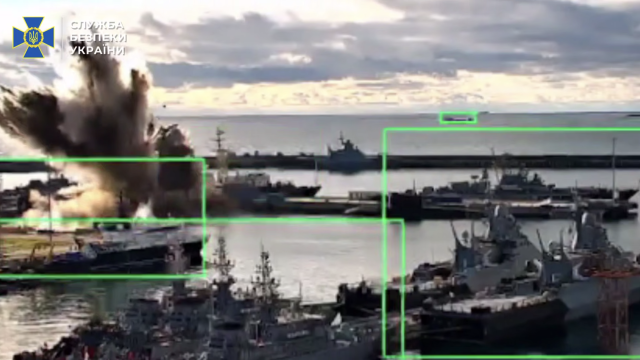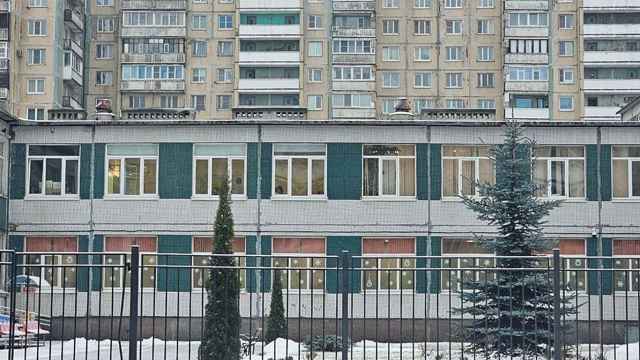UNITED NATION — Russia and six former Soviet republics have urged NATO-led forces in Afghanistan to end their "ineffective tactics" of pushing militants from combat zones in the south to other areas, including the once relatively peaceful north.
Russia's UN ambassador, Vitaly Churkin, speaking on behalf of the Moscow-led Collective Security Treaty Organization, said the alliance believes that anti-terrorism efforts should be aimed primarily at eliminating terrorists and extremists.
Churkin told the UN General Assembly on Thursday that four of the organization's members — Kazakhstan, Kyrgyzstan, Uzbekistan and Tajikistan — are concerned about the growing instability in the north.
Churkin said the campaign by international and Afghan forces against Taliban and al-Qaida strongholds is ineffective because it is "squeezing militants from the combat zones, which allows them to maintain their combat power and relocate to other parts of the country including northbound."
The General Assembly was debating the situation in Afghanistan ahead of the expected adoption of a nonbinding resolution renewing the international community's commitment to the Afghan government's plan for a phased transition to full responsibility for the country's security. The draft also expresses support for an Afghan government-led process of peace and reconciliation.
Germany's UN ambassador, Peter Wittig, who introduced the resolution, said with its adoption the 192 UN member states will "strongly renew the message of international solidarity with the Afghan people and underline that transition is not a synonym for withdrawal."
Churkin said the Afghan government's plans lay "a solid foundation" for the development of a peaceful, independent, prosperous and neutral state.
But he cautioned that much needs to be done, especially "suppressing terrorist and extremist threats, achieving durable national reconciliation, building competent Afghan security forces … and curbing drug-related criminal activity."
The withdrawal of the NATO-led forces depends on implementation of its mandate to ensure security, suppress terrorist activity and create an effective Afghan army and police force, Churkin said.
He urged the Afghan government and international forces "to more vigorously fight against the Afghan narcotics industry, especially in the view of the undoubted fact that drug trafficking has become a major source of funding for terrorist activities in Afghanistan."
Last month, an unprecedented drug raid conducted jointly by U.S., Afghan and Russian agents near the border with Pakistan netted $56 million worth of heroin and morphine.
The joint drug bust reflected an improvement in relations between the former Cold War foes, two decades after U.S.-financed Afghan militias chased the Soviet military out of the country. But Afghan President Hamid Karzai complained that he hadn't been informed in advance of Russia's participation.
Karzai telephoned President Dmitry Medvedev on Wednesday, and the Kremlin said in a statement that the Afghan leader called for closer cooperation with Moscow.
Churkin said the Collective Security Treaty Organization "can offer an invaluable service to the Afghan authorities and foreign military presences in their fight against [the] narcotics industry," adding that its interaction with NATO in combating drug trafficking is "long overdue."
He said the Russian-led alliance has a drug prevention operation that has detected and shut down a number of drug smuggling routes from Afghanistan and international and regional channels to deliver synthetic drugs from Europe. It has also stopped activities of clandestine laboratories and prevented drug precursors from getting into illicit circulation, Churkin said.
On Wednesday, Foreign Minister Sergei Lavrov said after talks with NATO chief Anders Fogh Rasmussen in Moscow that Russia would do more to help NATO in Afghanistan, he but stopped short of making any specific commitments.
"We will expand our cooperation in Afghanistan; it's in our common vital interests," Lavrov said, without elaborating.
Rasmussen told reporters that he hoped that Russia and NATO could reach an agreement that would be combination of "some bilateral arrangements between Russia and the [United States]" as well as Russia and NATO.
Rasmussen also handed over new proposals on cooperation with Russia on missile defense and mentioned a possibility of establishing a NATO-Russia council trust fund to finance Russia's supply of helicopters and Afghan pilot training.
Rasmussen and Lavrov gave no details of the new NATO proposals, but the Russian foreign minister said they reflected NATO's understanding that cooperation on missile defense must be equal.
Rasmussen also met with President Dmitry Medvedev, who is to attend a Russia-NATO Council summit in Lisbon, Portugal, later this month.
"I think our summit in Lisbon will represent a fresh start in the NATO-Russia relationship," Rasmussen told reporters after the talks.
A Message from The Moscow Times:
Dear readers,
We are facing unprecedented challenges. Russia's Prosecutor General's Office has designated The Moscow Times as an "undesirable" organization, criminalizing our work and putting our staff at risk of prosecution. This follows our earlier unjust labeling as a "foreign agent."
These actions are direct attempts to silence independent journalism in Russia. The authorities claim our work "discredits the decisions of the Russian leadership." We see things differently: we strive to provide accurate, unbiased reporting on Russia.
We, the journalists of The Moscow Times, refuse to be silenced. But to continue our work, we need your help.
Your support, no matter how small, makes a world of difference. If you can, please support us monthly starting from just $2. It's quick to set up, and every contribution makes a significant impact.
By supporting The Moscow Times, you're defending open, independent journalism in the face of repression. Thank you for standing with us.
Remind me later.





